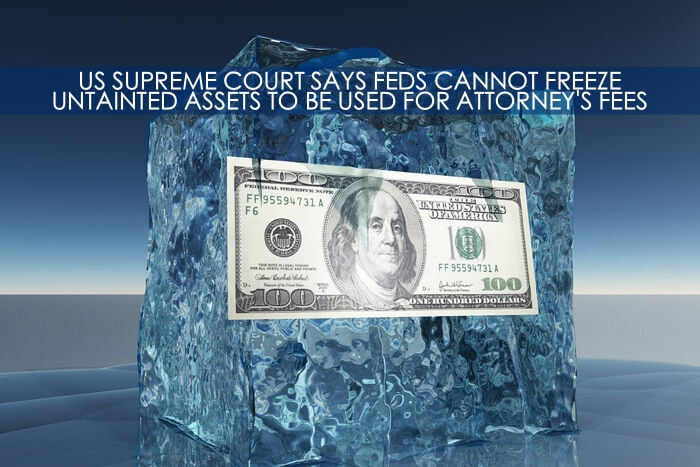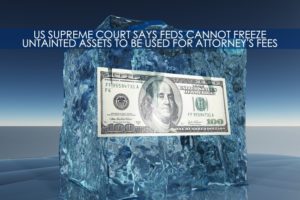
In Luis v. United States, the Supreme Court Addressed Whether and to What Extent, Federal Authorities Can Seize Assets Unrelated to Criminal Activity.
 Many federal defendants have been in the position of needing to hire an attorney but having all of their assets frozen. Not anymore. The United States Supreme Court ruled this week that the federal government cannot, before trial, seize the assets of the defendant if those assets are unrelated to the criminal allegation and are needed to fund a defense attorney.
Many federal defendants have been in the position of needing to hire an attorney but having all of their assets frozen. Not anymore. The United States Supreme Court ruled this week that the federal government cannot, before trial, seize the assets of the defendant if those assets are unrelated to the criminal allegation and are needed to fund a defense attorney.
See Luis v United States (US S.Ct. 2016)
Luis v. United States – Case Background
In Luis, a Miami woman named Sila Luis was accused of Medicare and banking fraud. The criminal charges alleged that she illegally used kickbacks and other criminal schemes to fraudulently obtain over $45 million. Luis only had $2 million left when federal prosecutors obtained a court order seizing all of her assets — both those assets related to the crime and those unrelated to it. She challenged the federal seizure order arguing that she needed the unrelated (untainted) assets in order to retain an attorney for her trial.
A majority of Supreme Court justices agreed with Luis. that allowing the government to take her untainted assets would violate her Sixth Amendment right to counsel of her choice.
When Can the Federal Government Seize a Defendant’s Assets?
18 U.S. Code Section 1345(a)(2) provides that a court may freeze before trial certain assets belonging to a defendant accused of violations of federal health care or banking laws. Those assets include (1) property “obtained as a result of” the crime, (2) property “traceable” to the crime, and (3), as relevant here, other “property of equivalent value.”
Writing for four of the justices, Justice Stephen Breyer explained that the frozen assets
belongs to the defendant, pure and simple.” He added that, as a practical matter, to accept the government’s position could have grave consequences for a defendant who is actually innocent, whose assets are all untainted and, if seized, would leave the defendant without her lawyer of choice to defend against meritless charges.
He went on, “[t]o permit the Government to freeze Luis’ untainted assets” in this case, Breyer wrote, “would unleash a principle of constitutional law that would have no obvious stopping place.”
Chief Justice Roberts, Justice Ginsburg, and Justice Sotomayor joined the Justice Breyer’s opinion. Justice Thomas wrote separately, with a slightly different analysis, explaining that the 6th Amendment right to counsel of choice would be meaningless if we did not allow a defendant to use his or her property to pay for that attorney.
Justices Kennedy and Alito dissented and would hold that there is no real way to distinguish between tainted and untainted assets since money is fungible.







